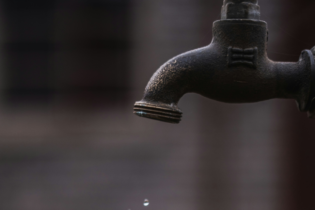The Addis Abeba City Administration proposed a 16 billion-Br preliminary budget for the 2012/13 Ethiopian fiscal year that prioritises water and sewerage services, commanding 13% of the spending plan.
The preliminary budget, prepared by the City’s Finance & Economic Development Bureau, will be tabled to the City’s Cabinet, chaired by Mayor Kuma Demekssa, for discussion next week, according to sources from the City Administration. The budget has seen a 4.2 billion Br increment over the currently ending fiscal year. For the second time in a row, water and sewerage services are taking a bigger chunk of the budget, at 2.09 billion Br, registering a 47% increment over the previous year’s allocation. The road construction sector follows with 1.5 billion Br. When the City Administration shifted its top priority from the road sector to water and sewerage services for the current fiscal year, it was aiming to improve the then-73pc water supply coverage of the City. Using the previous 1.4 billion Br allocation, the Addis Abeba Water Sewerage Authority (AAWSA) increased the supply coverage to the current 93%, as it claimed it would. In addition to the City Administration’s proposed earmark, the AAWSA had 1.7 billion Br approved for its Akaki Deep Water Well Project, which is anticipated to boost the total water supply of the City to 100%. The project, which will be finalised within two years, will have the capacity to generate 70 000 cubic metres on a daily basis. The Akaki Project cost is to be covered by a soft loan from the Export-Import (EXIM) Bank of China. The loan has already been approved by the Council of Ministers and was sent to Parliament for endorsement last week. Almost securing finances for its ambitious Project, the AAWSA plans to use a large portion of the allocated budget for its other main duty. “The biggest chunk of the allocation will be used to improve the City’s sewerage system, which the Authority has not given much attention to, so far,” an official at the AAWSA told Fortune. The Authority is planning to construct sewerage treatment plants in Akaki, Kality, and Kotebe in the next fiscal year. The three locations were chosen through a feasibility study conducted by an international consultant that also determined the kind of treatment plant the City needed. The study took into consideration the 10-year population expansion of the city. The three treatment plants will mainly be connected with the sewerage lines of condominium houses. The introduction of condominium houses and their modern sewerage lines gave the Authority the homework of modernising and upgrading its sewerage system, according to the official at the AAWSA. Addis Abeba’s sewerage system comprises of about 30km of trunk sewer lines and 90km of secondary sewers, which serve about 40 000 people via 1 800 connections, according to the AAWSA’s 2002 Waste Water Master Plan. The Master Plan admits that the rate of connection is very low and has not showed a big improvement since 1993.On the contrary, the road construction sector of the City, which was the number one priority for the City Administration for a long time, has shown significant improvement since 1998, when the Addis Abeba City Roads Authority (AACRA) was-established. The road network coverage has doubled from the then-1 300km.
The AACRA demanded more than two billion Br for next fiscal year’s operations, but the City Administration allocated an amount less by half a billion Birr. The AACRA officials seem to have accepted the Administration’s decision, though.
“For sure, there is demand for the construction of roads, but we cannot be out of the City’s [budget]capacity,” an official at the AACRA told Fortune.
“The 16 billion Br was fixed after considering the City’s capacity to generate revenues,” a source from the Finance & Economic Development Bureau told Fortune. The City Administration plans to cover its expenditures from tax, nontax revenues, municipal services, loans, the road fund, and aid. Like the 137.8 billion Br federal budget that was presented to Parliament last week, the City Administration’s budget also relies on domestic tax revenues. Officials at the City aspire to generate more than half of the budget, amounting to 8.5 billion Br, from tax revenues. The contribution of tax revenues to the budget might increase further, as City officials are still in discussions to increase the total budget to around 18 billion Br, according to sources. The discussion is centred on whether the City should increase the share of taxes or leave it as it is, in order to avoid to too much pressure on businesses. Since the City’s Revenues Agency merged with the federal-level Ethiopian Revenues & Customs Authority (ERCA) last year, and the revenues collection has seen an increase. This is because of the federal tax Authority’s focus on increasing the tax base as well as reassigning businesses into different tax brackets. As a result, tax collected from Addis Abeba in the first quarter of the currently ending fiscal year reached 1.6 billion Br, double the amount collected in the same period last year. This account for 30% of the 5.5 billion Br that the planned to collect this fiscal year. The City Administration also aims to collect 1.9 billion Br and 4.3 billion Br from municipal services and nontax revenues, respectively. Out of municipal services, such as from leases, building permits, and title deed services, the City Administration plans to raise 2.4 billion Br in the next fiscal year, of which revenue from lease services alone is expected to contribute around 1.2 billion Br, according to data obtained from the City Administration. Foano Fola, deputy head of the Economic Development Division of the Bureau, declined to comment on the issue. Source: allAfrica.com






